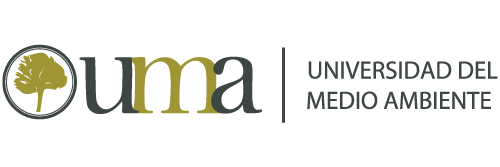Learn how to design and operate innovative educational programs arising from the values and paradigms that our world needs to take its next step.
Current educational models were designed for the proper functioning of the industrial revolution. Our world has changed, and now we need educational models that recognize a new reality. The Master’s program is aimed at educators at all levels, trainers promoters of local development processes, and in general, people interested in the educational process connected with sustainability. The Program focuses on developing the ability of agents of change to detect the potential transformation necessary to “reinvent” educational processes. Throughout the program, key elements such as systemic perspective, collective learning, active research and self- reflection in education towards sustainability are highlighted.
The Master’s program was developed from the perspective of “education with subject”. Beyond education for the subject or from the subject, its focus is to educate together with the subject itself that participates in the educational process. In addition to generating educational, intercultural and innovational skills, to be consistent with our approach to education with subject mastery, is a transformation process through which the participants are constantly researching their own learning process. This process is connected, on the one hand, with experimental research in the project, space or organization in which they are practicing as educators, and on the other, with the process of the Master’s itself, which is reviewed and co-designed with students.
Almost 40 years ago, the United Nations expressed in the Declaration of the Inter-governmental Conference of Tbilisi, that “environmental education must be provided to people of all ages, at all levels and within the framework of formal education and non-formal”. Throughout postgraduate learning, today we want, in addition to environmental education, to educate for sustainability, and explore the teaching-learning process most suitable for this purpose. This means two things:
1. Environmental education and education for sustainable development are two different concepts:
Generally, we understand environmental education as the body of knowledge on the environment (including knowledge of ecology and biology, for example) and the relationship of humans with the environment; while education for sustainable development or sustainability, is based on an integrated social, economic and environmental focus. This focus, addresses a wide range of issues, such as democracy, gender equality and human rights. Therefore, environmental education is part of education for sustainability, but the latter is not exhausted in the first.
2. Educating for sustainability requires educational innovation:
The current lack of sustainability is the result of current educational, social, political and cultural paradigms. From an educational perspective, several features of the currently widespread pedagogical paradigm have cooperated to disconnect the human with the natural and social environment, such as: specialization and segmentation of knowledge areas, processes that do not seek to be significant and important for learners, prioritization of memorization over the development of thinking skills, directed and non-self directed learning, learning not applied and separated from the experience of reality, and the absence of collaborative learning processes that develop empathy,; among others. Therefore, to generate the competencies required for sustainability requires a new educational paradigm, not only in relation to learning content, but also in relation to the learning process.
For these reasons, the Master’s program focuses on educational innovation for sustainability: learn from doing, in cycles of action and collective reflection, aimed at transformation.
More information
